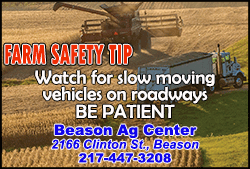|
 Each of the four governors, representing both ends of America's
political divide and a mix of urban and rural regions, cited health
data showing the pandemic reaching its most perilous point yet in
the United States, threatening to overwhelm hospitals and claim
thousands more lives in the weeks ahead. Each of the four governors, representing both ends of America's
political divide and a mix of urban and rural regions, cited health
data showing the pandemic reaching its most perilous point yet in
the United States, threatening to overwhelm hospitals and claim
thousands more lives in the weeks ahead.
They acknowledged that tighter limits on social interactions would
prove especially difficult through the winter holidays. But without
efforts to immediately tamp down the spread of the virus, the
governors warned, more drastic action would be necessary in the near
future.
Health experts have projected the coming holiday travel season and
the onset of colder weather, with more people tending to congregate
indoors, is likely to worsen the situation.
More than 70,000 Americans were hospitalized for treatment of
COVID-19 as of Monday, the most ever at any time since the pandemic
began, according to a Reuters tally of public health figures.

The number of U.S. infections documented to date surpassed 11
million on Monday, a little more than a week after crossing the
10-million mark - the fastest time it has taken for the national
tally to grow by a million cases.
The spike in cases and hospitalizations has been especially striking
in places like Iowa, a largely rural, Midwestern Corn Belt state
spared the worst ravages of the pandemic when it began eight months
ago.
Iowa, for example, has registered more than new 52,000 infections
over the past two weeks, about the same number documented from March
to mid-August, with COVID-19 accounting for one in every four
patients now hospitalized in the state.
"No one wants to do this," Iowa Governor Kim Reynolds, a Republican,
said in announcing that all indoor gatherings for social, leisure
and community events will be limited to 15 people, with outdoor
gatherings limited to 30, weddings and funerals included.
In addition, Iowa's restaurants and bars will be ordered to close by
10 p.m., and masks will be newly required for anyone spending at
least 15 minutes in an indoor public space without being able to
socially distance, the governor said.
Reynolds said success hinged on public cooperation rather than
enforcement.
"If Iowans don't buy into this, we lose," Reynolds told a news
conference. "Businesses will close once again. More schools will be
forced to go online, our healthcare system will fail, and the cost
in human life will be high."
Similar messages were delivered on Monday by the Democratic
governors of California and New Jersey, and their Republican
counterpart in Ohio.
PHILADELPHIA GETS TOUGH
Some of the most aggressive new actions to confront the crisis were
being taken at the local level, such as in Philadelphia, the
nation's sixth most populous city.
[to top of second column] |

Officials there on Monday ordered a ban on "indoor gatherings of any size in any
location, public or private," except among individuals who live together.
"We need to keep this virus from jumping from one household to another," city
Health Commissioner Thomas Farley told a news conference.
If the current rate of "exponential" growth in cases continues, hospitals will
soon be strained to their limits and more than 1,000 people could die in
Pennsylvania's largest city over the next six weeks, Farley said.
In neighboring New Jersey, one of the hardest-hit states in the early phase of
the pandemic, Governor Phil Murphy said he was ordering gatherings of people
from different households limited to 10 indoors, down from 25, while the
mandatory cap on outdoor gatherings will be lowered to 150 from 500.
Across the country, California Governor Gavin Newsom said he was applying
"emergency brakes" to his reopening plan, citing a doubling in the daily number
of COVID-19 cases reported across the state over the past 10 days.
Under Newsom's announcement, commercial and social restrictions will be
tightened starting Tuesday in 40 of the state's 58 counties, covering the vast
majority of its 40 million residents.
The crackdown means no indoor service in bars and restaurants and more
restrictions on many other businesses and public gatherings. California is also
strengthening its face covering guidance to require individuals to wear a mask
whenever outside their home, with limited exceptions, Newsom said.

In Ohio, where daily case tallies have increased by 17% and total
hospitalizations by at least 25% in the past week, the state's health department
issued a revised order to limit mass gatherings starting on Tuesday, Governor
Mike DeWine announced.
The flurry of measures came as 40 states have reported record daily increases in
COVID-19 cases this month, while 20 states have registered all-time highs in
daily coronavirus-related deaths and 26 reported new peaks in hospitalizations,
according to the Reuters tally.
The nation as a whole has averaged more than 148,000 new cases a day, and 1,120
daily deaths, over the past week.
(Reporting by Maria Caspani in New York and Sharon Bernstein in Sacramento,
California; Additional reporting by Doina Chiacu, David Shepardson and David
Lawder in Washington and Anurag Maan in Bengaluru; Writing by Sharon Bernstein,
Maria Caspani and Steve Gorman; Editing by Bill Tarrant, Aurora Ellis and
Rosalba O'Brien)
[© 2020 Thomson Reuters. All rights
reserved.] Copyright 2020 Reuters. All rights reserved. This material may not be published,
broadcast, rewritten or redistributed.
Thompson Reuters is solely responsible for this content. |